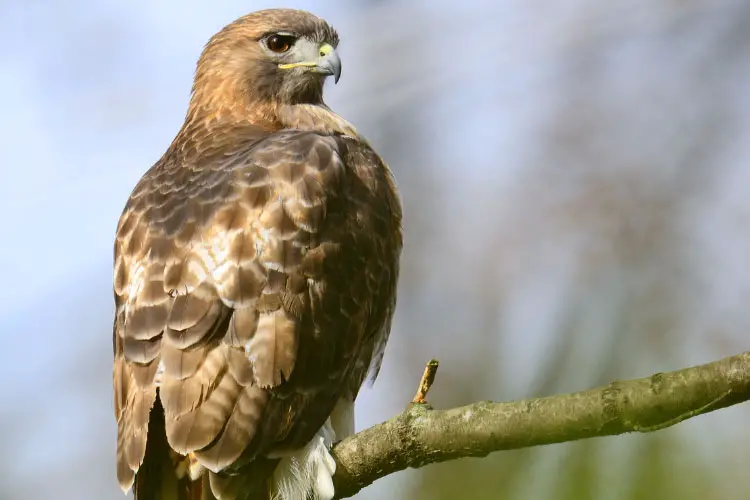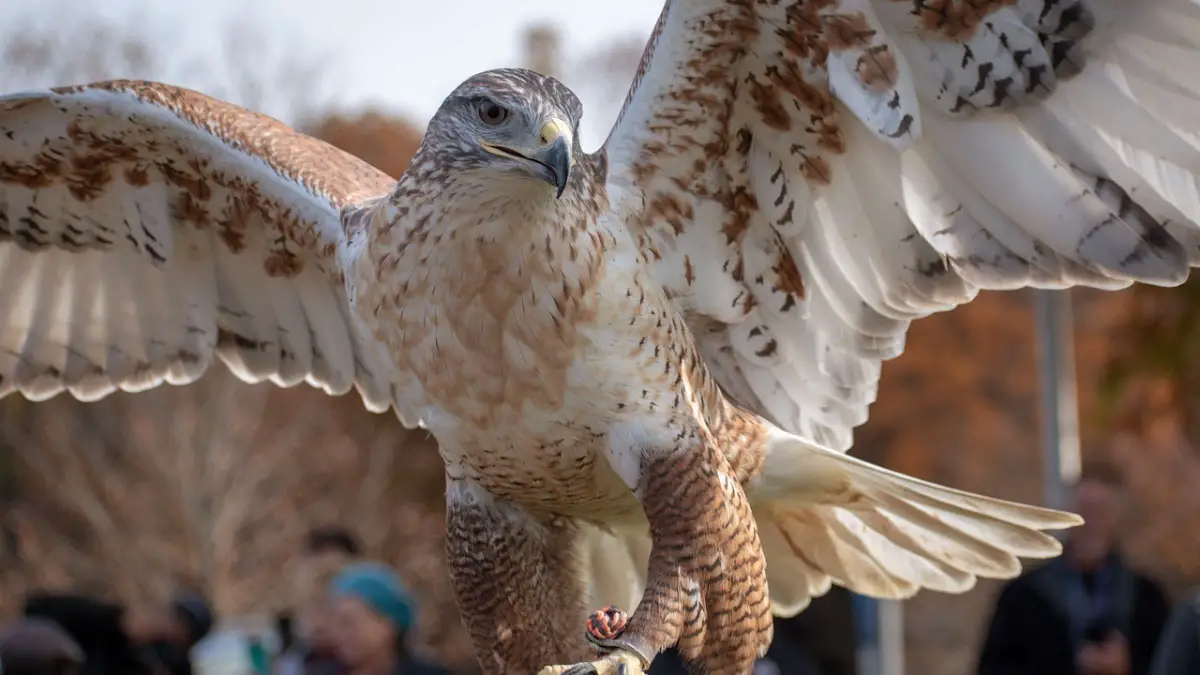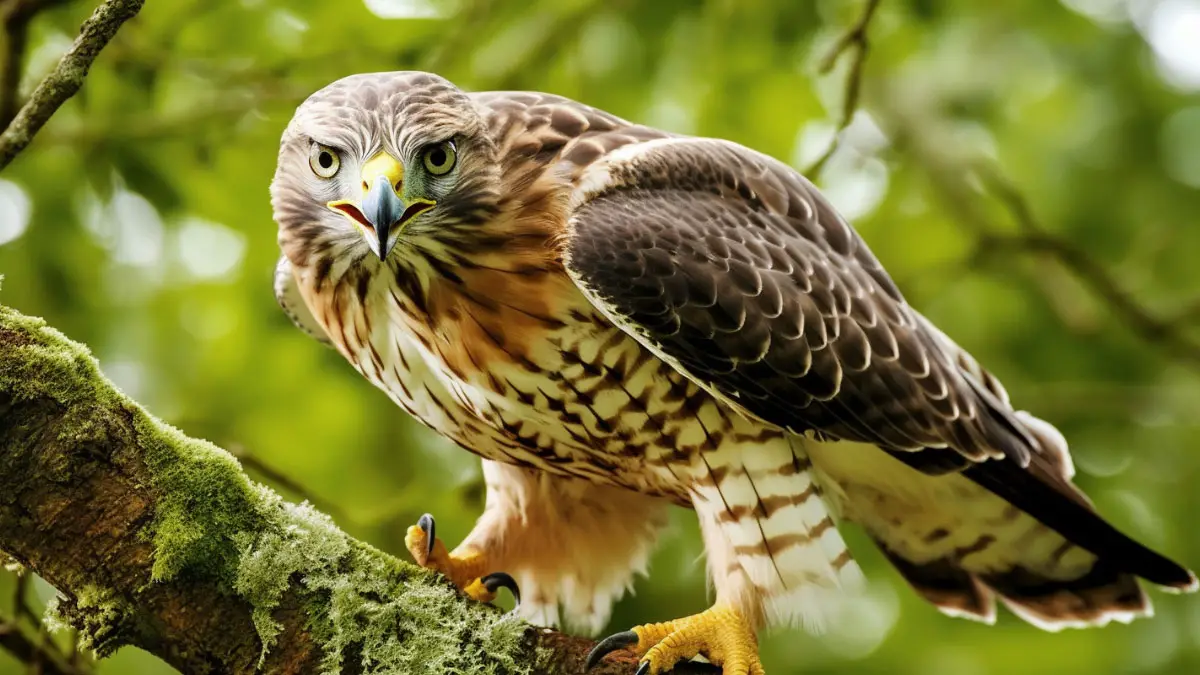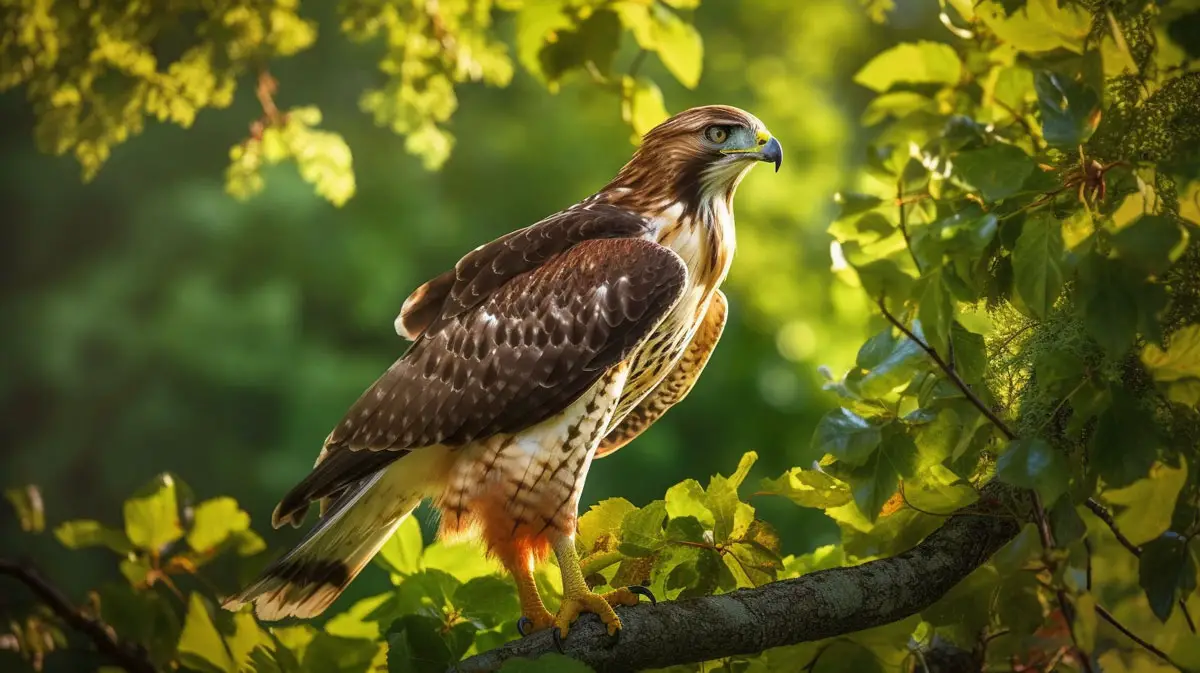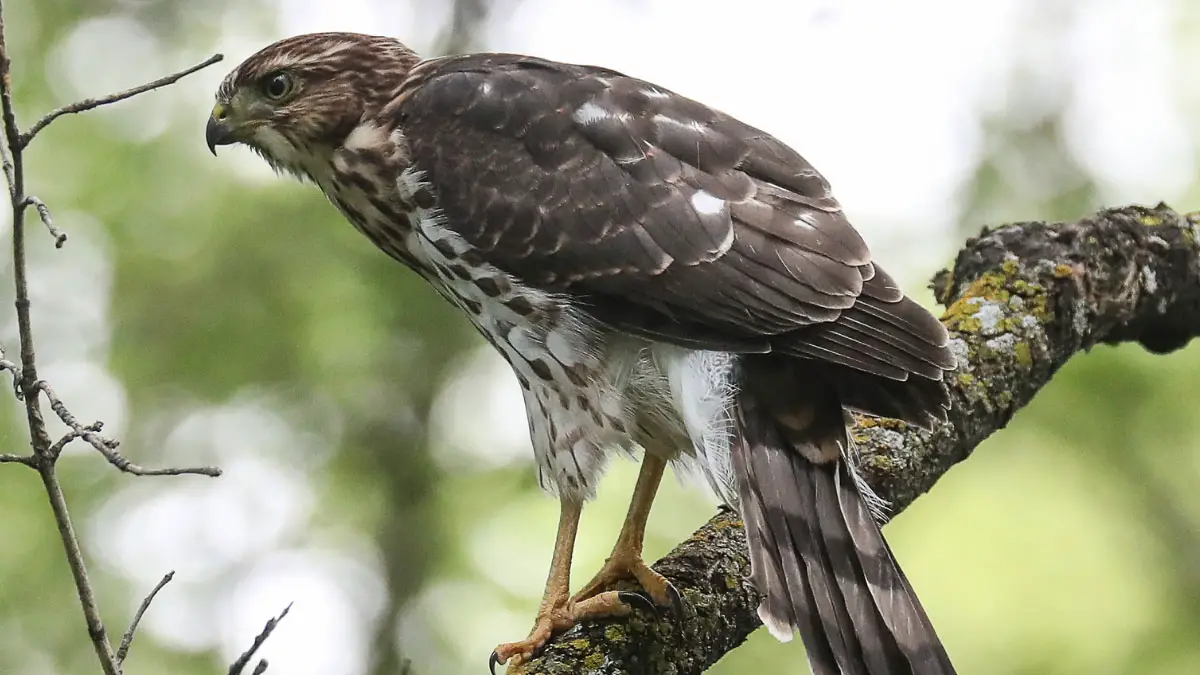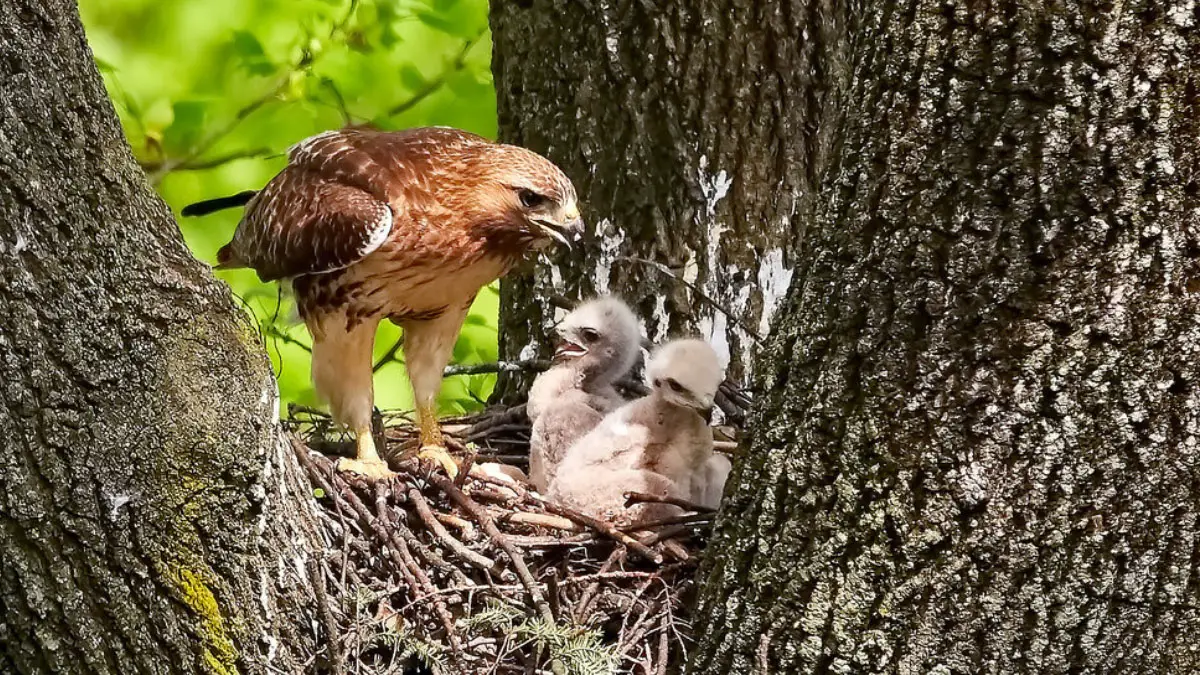All diurnal birds of prey, including eagles, vultures, falcons, and hawks, are federally protected. The law prohibits the possession, killing, or capture of hawks under the federal migratory bird treaty act. Since these birds are carnivores at the top of their food chain, you might wonder why they are protected.
So, why are hawks federally protected? Hawks were first federally protected during the era when bird killing was high, mainly for their feathers. However, in modern days hawks help control the prey population and maintain a life balance in nature.
Some people find it unusual that predators are protected instead of the prey. It sounds unfair, right? Continue reading below for a deeper understanding as we explore this topic.
Why Are Hawks Federally Protected?
Despite being predators at the top of the food chain in modern days, a decade ago, hawks were prey. This time the hawks were not animals’ prey but humans who poached them to sell them and their feathers.
In 1918, a federal migratory bird treaty act was enacted to stop the plume trade, where many birds died. This federal protection helped protect birds from going extinct, with the Carolina parakeet and the passenger pigeon being the unlucky few.
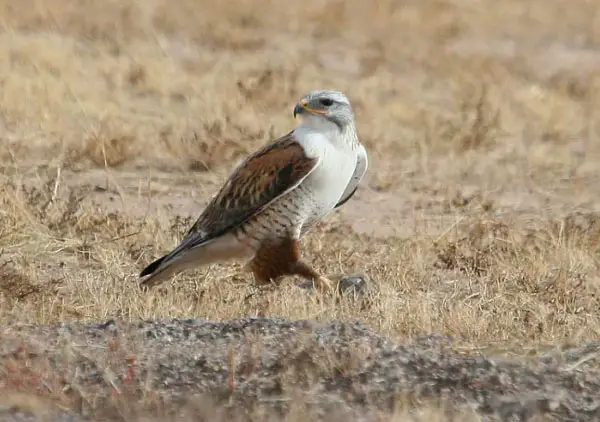
In modern days, the hawks are more important in controlling the population of the prey animals in the wild. If the herbivore animals grow exceedingly, they can quickly exhaust the natural environment. The result is an unnatural balance that will damage the ecosystem and the food web. The hawks help maintain the herbivores to habitat ratio and keep the ecosystem natural.
At the same time, hawks are scavengers and opportunists. While this may sound awkward, it is very important in the ecosystem. When hawks eat dead animals, they clean up the environment quite naturally. By killing the weak animals, these raptors also ensure that the jungle only remains with the fittest.
Are Hawks Endangered?
Several species of hawks are almost disappearing, with some remaining only in a few pairs. Humans are always the culprits in these cases, especially where a predator is a victim. Everybody needs to be enlightened about the approved national wildlife control practices to follow. Below are the most endangered species of hawks and information about their extinction.
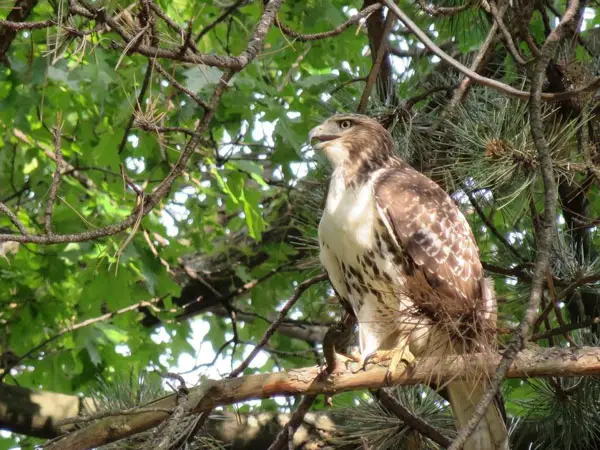
| Species | Information |
| Ridgeway hawks | Ridgeway hawks are the most critically endangered hawk species in the world. Today, only less than 500 ridgeway hawks are remaining. |
| Red-Shouldered hawks | Red-shouldered hawks are listed as endangered in the state of New Jersey. Currently, there are said to be less than 200 pairs of these hawks in New Jersey. |
| Ferruginous hawks | Ferruginous hawks are the largest in North America, and their population has reduced to a quarter of its former numbers in 1900. Research shows that there are less than 4000 pairs of these hawks. |
| Hen Harriers | In England, there is only one pair of breeding hen harriers left. |
Unfortunately, we have countable pairs of some hawk species in most states in the United States of America. It may mean that most people kill these predators because they can attack pets and become a nuisance to many. Each state has laws that protect these birds of prey.
In New Jersey, for instance, a man pleaded guilty to killing or attempting to kill four different hawk species, all federally protected. His ill escapades involved red-shouldered, cooper’s, red-tailed, and sharp-shinned hawks. His charges amounted to six months imprisonment, a penalty not less than $15,000, and over $4000 restitution to be paid to the wildlife rehab centers.
Why Are Hawks Endangered?
When the dinosaurs went extinct a million years ago, asteroid impacts, volcanic eruptions, and climate changes were the main culprits. In present days when predators like hawks are getting extinct, human actions are often among the reasons. Below are the top common reasons why some eagle species are going extinct.
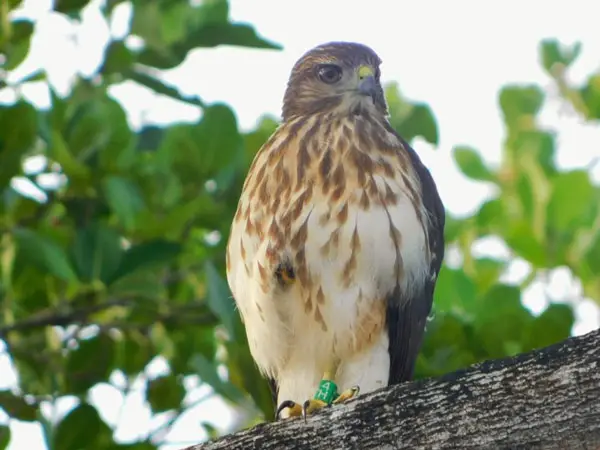
1. Selective Hunting
In the early years, hawks were shot as people declared them varmints. The hawks feasted on the poultry many people reared, and the shooting was their way of dealing with them. During the world war, hawks and other birds were shot at in suspicion of being used as messengers by the opposing sides. After the world war, hawks were shot at as game birds, a habit present in modern days.
2. Change In Habitats
In nature, most species of hawks live in wetlands, scrublands, and rainforests, to name a few. These habitats have been disappearing due to human activities like logging and clearing for infrastructure. Many birds result by leaving these habitats to find better ones in different parts of the world. This raptor migration is extremely difficult for these birds where a few make it through to forests, and others go to urban areas.
3. Illegal Bird Trade
Bird’s feathers were a popular fashion accessory in the early 1900s when many birds died. This led to the decrease of many species, including hawks, with some species going extinct. Also, there were many illegal bird trades, with some like the Javan hawk-eagle almost going extinct in the early 1990s.
Also read: Hawks Vision vs Human
How To Prevent Hawks from Going Extinct?
Keeping these predators alive can help maintain the population of herbivores in the natural environment. If these species are gone, it can be harder to deal with rodents like ground squirrels from destroying crops in fields. For hawk’s protection, the endangered species are taken care of at animal reserves where they can be more secure.
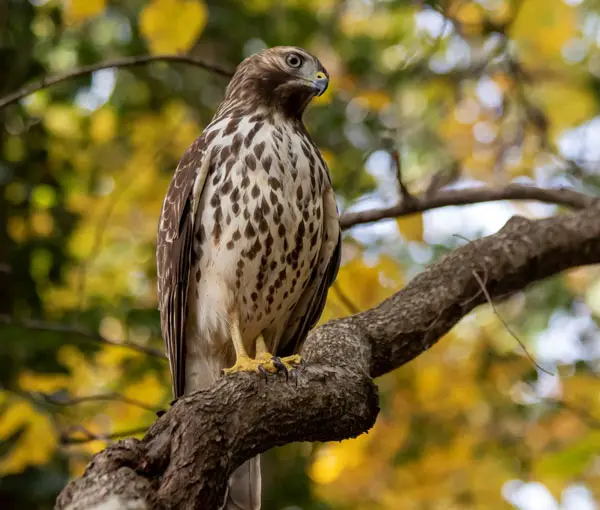
Also, federal protection for the eagles and other aerial predators reduced the animal killings. People are urged not to shoot these birds but rather report their presence to animal control or reserve officers. Minimizing deforestation can also help maintain their numbers by not forcing them to migrate. Human interference with these natural habitats causes disruption in their nesting ground, which results in a lack of a new generation born.
FAQ
Protection of carnivores like hawks is not an explored topic. This means there are a lot of unanswered questions. Below are frequently asked questions related to this topic and their well-researched answers.
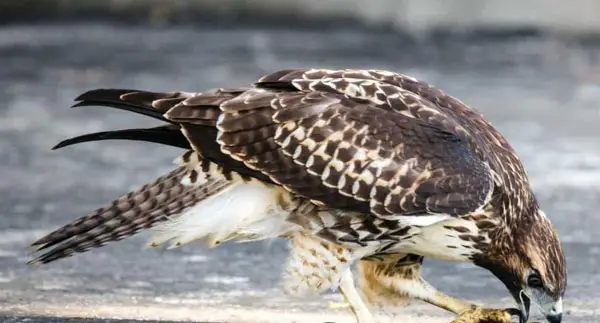
Hawks are well known for attacks on free-range chickens and other poultry animals intending to eat them. However, unless you have federal permits it’s not legally allowed to shoot these birds of prey. There are various ways to protect your poultry from hawks, including covering, using a guard dog, or adding a rooster.
Federal law protects birds of prey such as hawks, and shooting one can cost you up to $1500. This offense can also result in jail time in cases where the offense is brutal and deliberate. The bald eagle is the most protected bird of prey, and killing one can also result in serious law problems.
Related: Why Are Hawks Hanging Around My House?
Conclusion
Every animal, despite its place in the food chain, deserves some protection by the law. This law helps protect the animal from running extinct as a result of several illegal activities by humans. In turn, that animal has a purpose in the ecosystem, helping to maintain it in its natural state.
Hawks suffer from multiple fits of abuse by humans as they are deemed as varmints. Their natural habitats are also changing due to human activities forcing them into urban areas. However, they are essential to the ecosystem hence their federal protection under migratory bird treaties.
